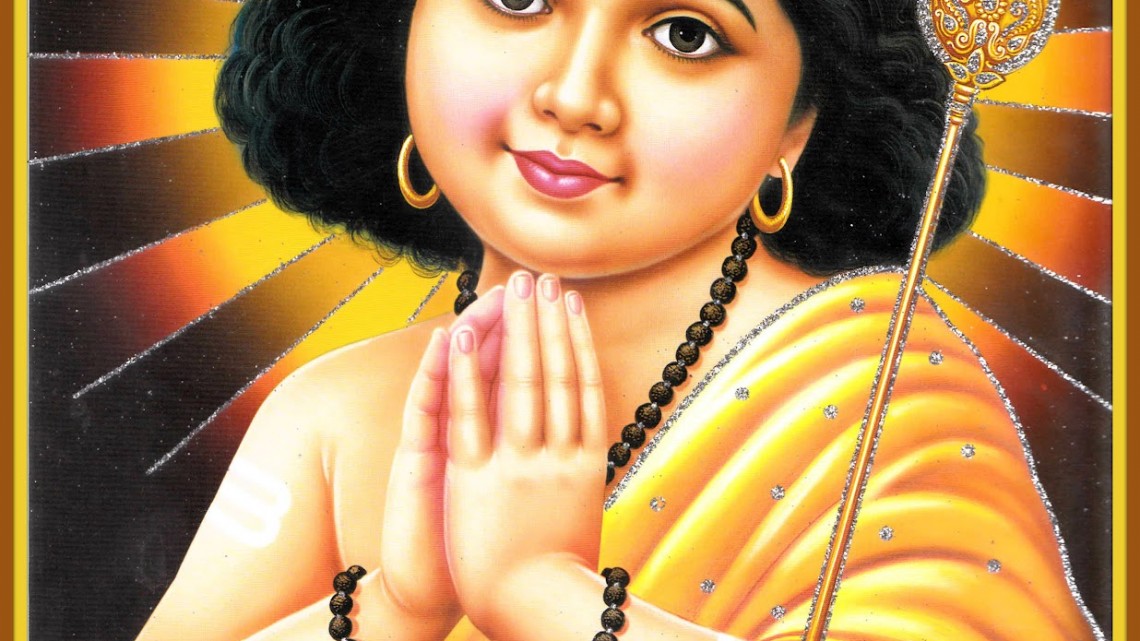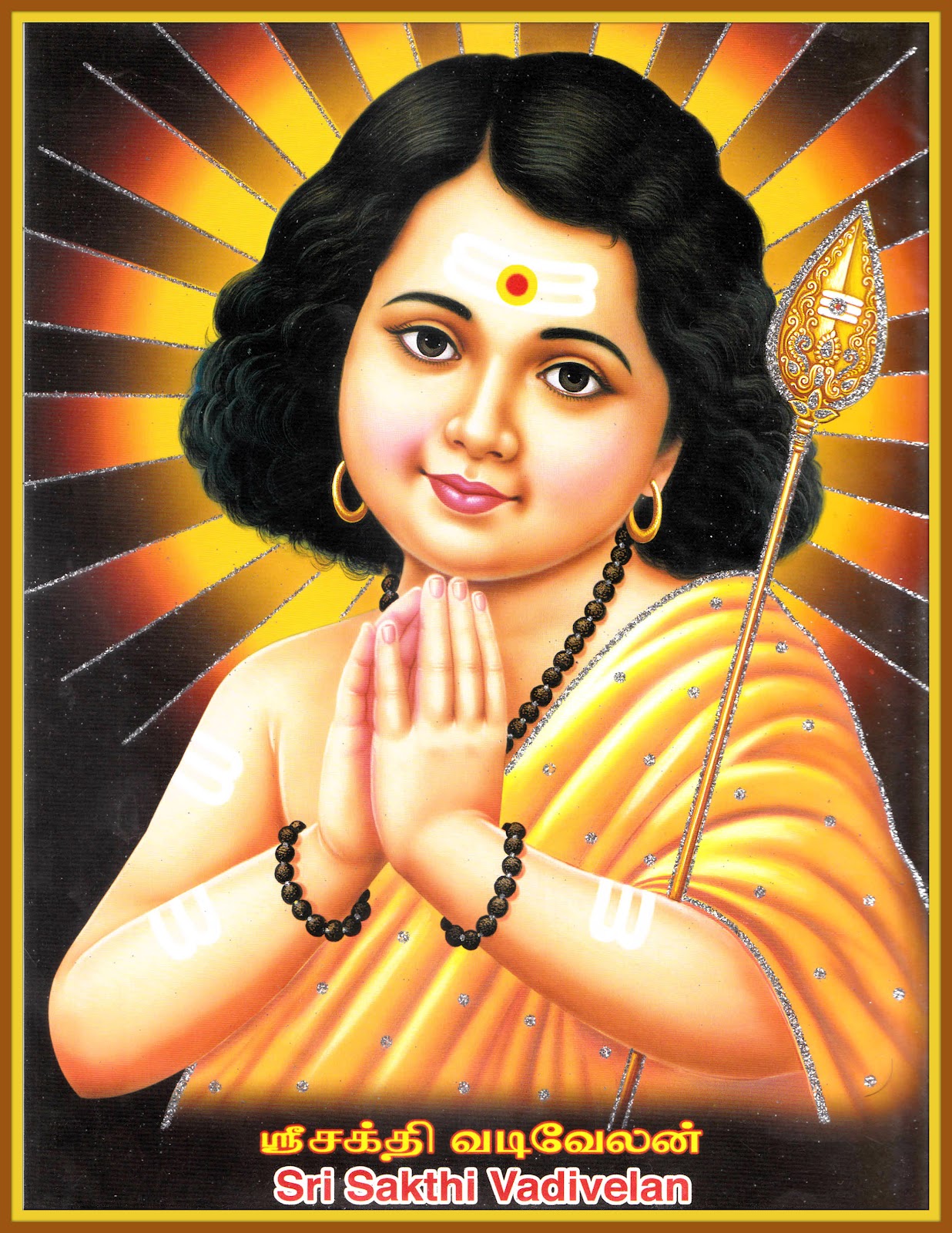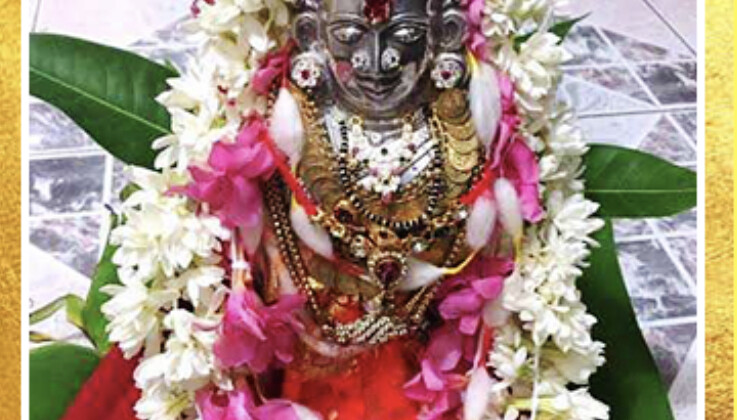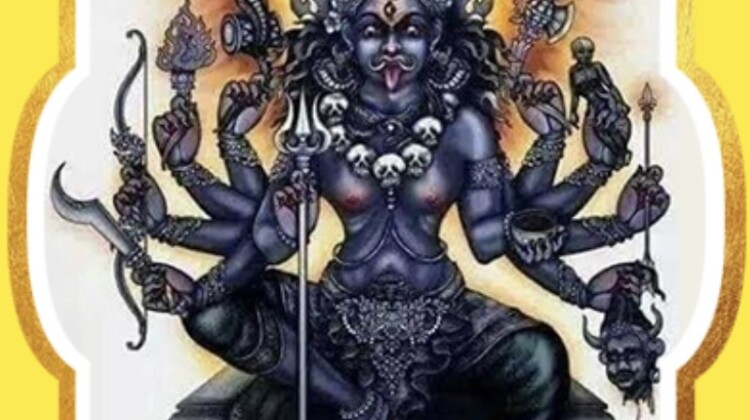Kumāra is generally considered as the son of the divine parents Śiva and and Pārvatī. He is known from varied Sanskrit texts from the ancient to the present times under varied names like Kārttikeya, Visākha, Guha, Senāpati, Sanmukha and Śaravanabhava. Some of these like Kārttikeya (son of the Krttikā goddesses) and Saravanabhava (born in a thicket of reeds), clearly describe the god’s personal details through their own etymology and simple legends. Amongst the god’s names Skanda and Subrahmanya are crucial to understand the symbolism and evolution of the deity’s concept and its worship (upāsanā) in diverse ways as suited to a range of devotees.
Skanda Purana Verse 26.16-17
Lord Śiva listens to the troubles of the gods created by the demons against them, and the necessity for Śiva procreating a son soon to overcome their problems. According to their wishes, Śiva took up a beautiful form with six faces and looked at Pārvatī lovingly. At that time, a dazzling lustre similar to numerous suns arose from the eye in his forehead. This was so, because Śiva is greatly self-controlled that his semen can have only an upward movement. Hence he is calledŪrdhva-retas.
The six-faced lustre spread out in the whole world. People, not being able to put up with it, ran in all directions. At Śiva’s suggestion, the Fire and Wind gods carry the lustre to a forest of reeds near Ganges, who united it with a lotus that was in a pond nearby. There a charming child with six faces and twelve arms was born. In the next moment the infant was transformed into a normal but extremely beautiful child
The Birth of Lord Muruga is noted to be Vaikashi Visakam day and vedicfolks request you to celebrate this day by inviting Lord Skanda in Agni. Sponsor Vedicfolks special Muruga Homam on this great day. Visit http://www.vedicfolks.com/others/karma-remedies/shared-homam-/vaikasi-visakam-muruga-birthday-homam.html




















